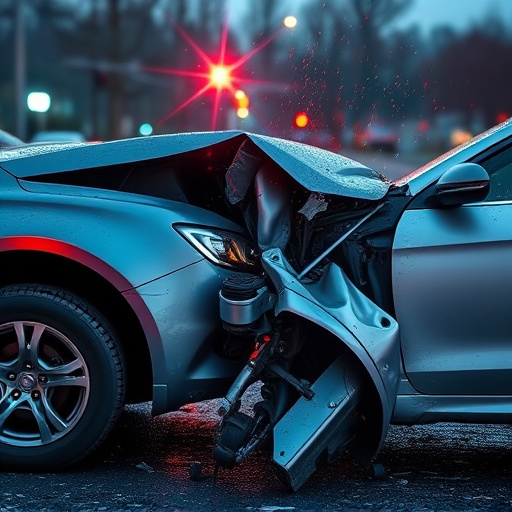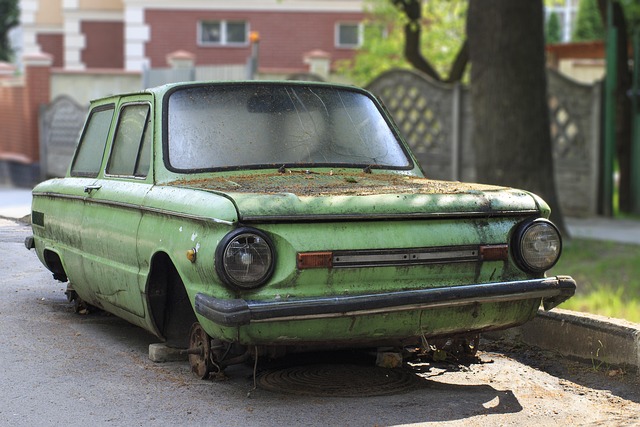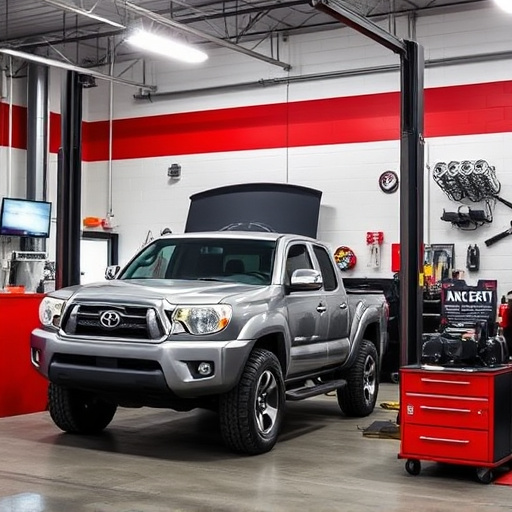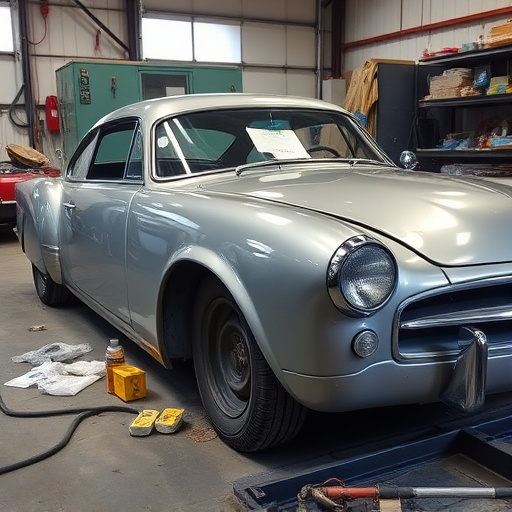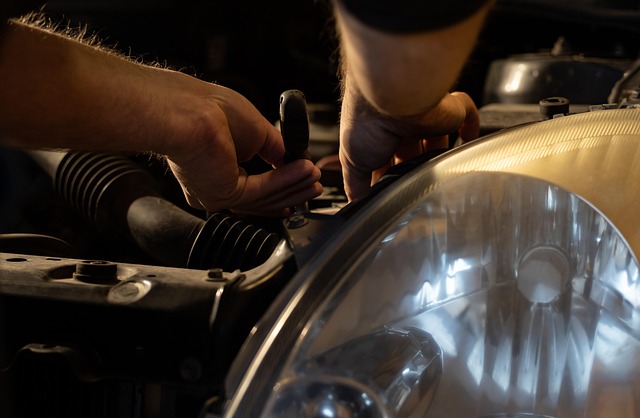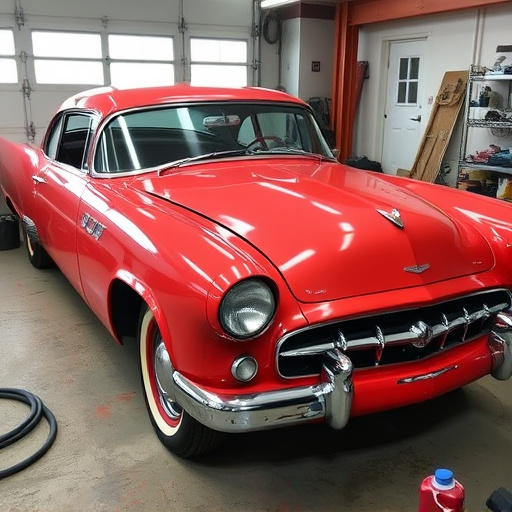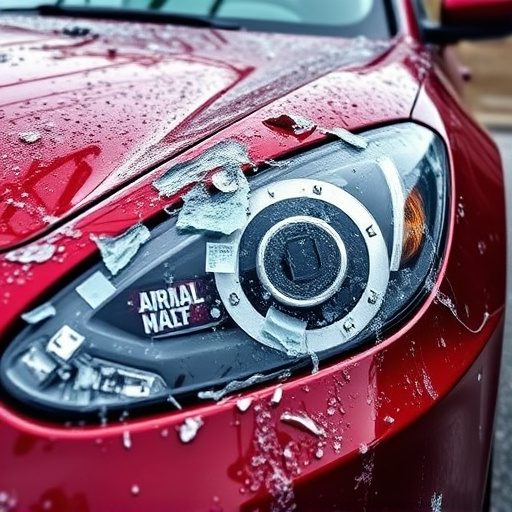Diesel truck collision repair is a specialized art that combines advanced diagnostics and techniques like metal fabrication, painting, and computer-aided restoration to ensure safety. Quality checks guarantee structural integrity and reinstates safety features, adhering to stringent regulations. Growing popularity of diesel trucks has led to advancements in training and specialized shops, with future trends focusing on automation and sustainability for elevated safety standards.
Diesel truck collision repair is a critical aspect of maintaining safety standards in the transportation industry. With an increasing number of diesel-powered trucks on the road, efficient and effective repair processes are essential. This article delves into the intricate details of the diesel truck collision repair process, exploring how advanced techniques contribute to enhanced safety measures. We examine the impact on industry standards and forecast future trends shaping this vital sector.
- Understanding Diesel Truck Collision Repair Process
- The Role of Repair Techniques in Enhancing Safety
- Impact on Industry Standards and Future Trends
Understanding Diesel Truck Collision Repair Process

The process of diesel truck collision repair is a meticulous and specialized task, crucial for maintaining safety standards on the roads. It begins with a thorough inspection to assess the extent of damage, which can range from structural issues to more subtle problems like dents or cracks in the bodywork. Skilled technicians use advanced diagnostic tools to identify these flaws, ensuring no hidden dangers go unnoticed. Once the scope of work is established, the repair process unfolds in a systematic manner.
For example, in a Mercedes-Benz collision repair, trained professionals might employ a combination of techniques including metal fabrication, painting, and computer-aided restoration. They carefully straighten bent panels, replace damaged parts, and meticulously fill and sand any dents or scratches. After these repairs, the vehicle undergoes rigorous quality checks to meet strict safety standards, ensuring it is roadworthy and secure for future trips. Collision repair services extend beyond aesthetics; they are vital for restoring structural integrity, enhancing safety features, and returning vehicles to their optimal condition post-accident.
The Role of Repair Techniques in Enhancing Safety
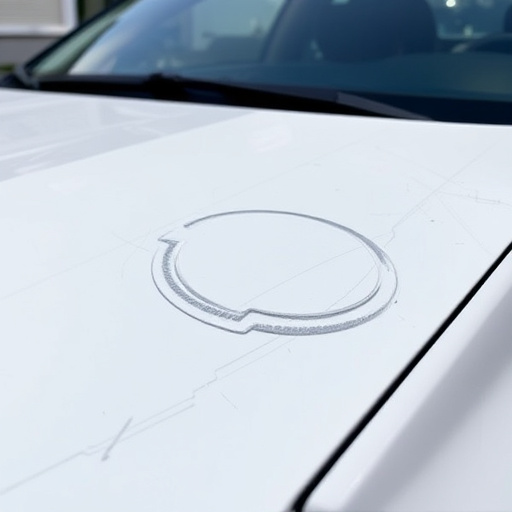
The effectiveness of diesel truck collision repair is closely tied to its ability to enhance safety standards. Advanced repair techniques play a pivotal role in this process. Modern auto glass repair methods, for instance, ensure that replacement windows and mirrors are not just functional but also meet high-quality safety standards. These techniques often involve specialized equipment and trained personnel to precisely cut and install new glass, maintaining the structural integrity of the vehicle.
Furthermore, collision repair services for diesel trucks incorporate sophisticated technology to accurately align and replace damaged parts. This meticulous process guarantees that the truck’s overall stability and performance are restored, thereby significantly reducing the risk of future accidents. Efficient car collision repair practices not only restore the truck’s operational capabilities but also uphold stringent safety regulations, ultimately contributing to a safer road environment for all users.
Impact on Industry Standards and Future Trends
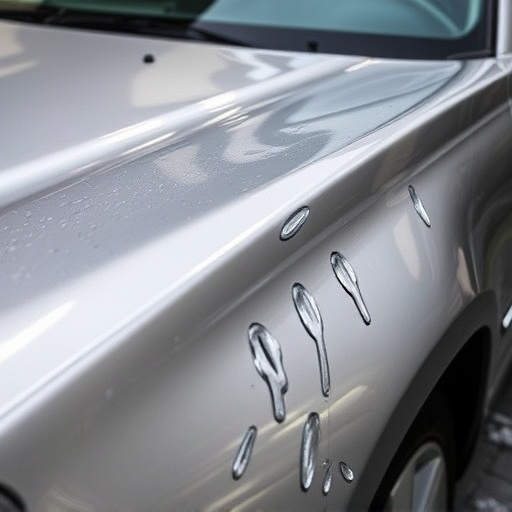
The rise in diesel truck collision repair has prompted a significant shift in industry standards and safety protocols. As more commercial vehicles hit the road, the need for specialized auto repair shops equipped to handle complex diesel engine repairs and vehicle body shop restoration has become increasingly vital. This demand is driving advancements in training programs for technicians, who now require extensive knowledge of modern diesel technologies.
Looking ahead, future trends in diesel truck collision repair are poised to enhance safety standards even further. Automation and advanced diagnostics are expected to play a significant role, enabling faster and more precise repairs. Additionally, the integration of sustainable practices, such as eco-friendly materials and efficient energy usage in vehicle dent repair processes, will contribute to a greener automotive industry.
Diesel truck collision repair plays a pivotal role in maintaining safety standards within the transportation industry. By employing advanced repair techniques, professionals ensure that damaged trucks are restored to their optimal condition, minimizing risks on the road. The impact of these repairs extends beyond individual vehicles, influencing broader industry standards and paving the way for future innovations aimed at enhancing safety and efficiency. As technology evolves, the continuous focus on improving diesel truck collision repair processes will remain crucial in fostering a safer transportation ecosystem.


